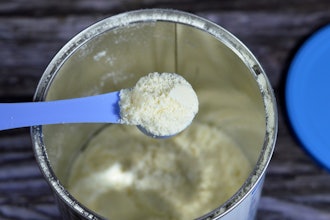
Lifestyle changes are known to reduce the risk for heart attacks and strokes. A new study that simulated the effect of lifestyle change on future cardiovascular risks for people with high blood pressure suggests one change – adopting a heart-healthy diet – may do more than others.
The findings predict adopting the DASH (Dietary Approaches to Stop Hypertension) diet would do more to cut cardiovascular events over a 10-year period than changes such as weight loss and physical activity for young and middle-aged adults with stage 1 hypertension that isn't being treated.
It's a population researchers estimate includes nearly 9 million U.S. adults who "represent a significant, impending burden for health care systems," co-lead researcher Kendra D. Sims said in a news release. She is a postdoctoral fellow at the University of California, San Francisco. "Our results provide strong evidence that large-scale healthy behavior modifications may prevent future heart disease, related complications and excess health care costs."
The study is being presented Saturday at the American Heart Association's Hypertension Scientific Sessions in San Diego. The findings are considered preliminary until the full results are published in a peer-reviewed journal.
Stage 1 hypertension is defined as having a systolic (top) number of 130-139 mmHg or a diastolic (bottom) number of 80-89 mmHg, according to AHA and American College of Cardiology guidelines. People with stage 1 hypertension typically are treated with lifestyle change rather than medications.
Researchers used previously published trial data and evidence from meta-analyses about the blood pressure-reducing effects of lifestyle changes to simulate heart disease and stroke events, death rates and health care costs from 2018 to 2027 for people ages 35 to 64 with untreated stage 1 high blood pressure. Those lifestyle changes included changes in diet, physical activity, smoking cessation, sustained weight loss and reduced alcohol consumption.
They found making lifestyle changes that resulted in lowering blood pressure to under 130 mmHg systolic or 90 mmHg diastolic could have substantial health and economic benefits. The model estimated lifestyle changes would prevent 2,900 deaths and 26,000 cardiovascular events, such as strokes or heart attacks, during the simulated time period. It also predicted these changes could save $1.6 billion in associated health care costs.
Adopting the DASH diet would have the largest benefit, preventing an estimated 15,000 cardiovascular events among U.S. men and 11,000 among U.S. women. The DASH diet was developed to help manage blood pressure levels. It emphasizes consumption of fruits, vegetables, lean meats, nuts, seeds and grains and limits consumption of red meat, sodium, sugar and sugar-sweetened beverages.
"Unfortunately, the availability and affordability of healthy food sources does not easily allow people to follow the DASH diet," Sims said. "Clinicians should consider whether their patients live in food deserts or places with limited walkability. Health counseling should include addressing these specific challenges to blood pressure control."






















